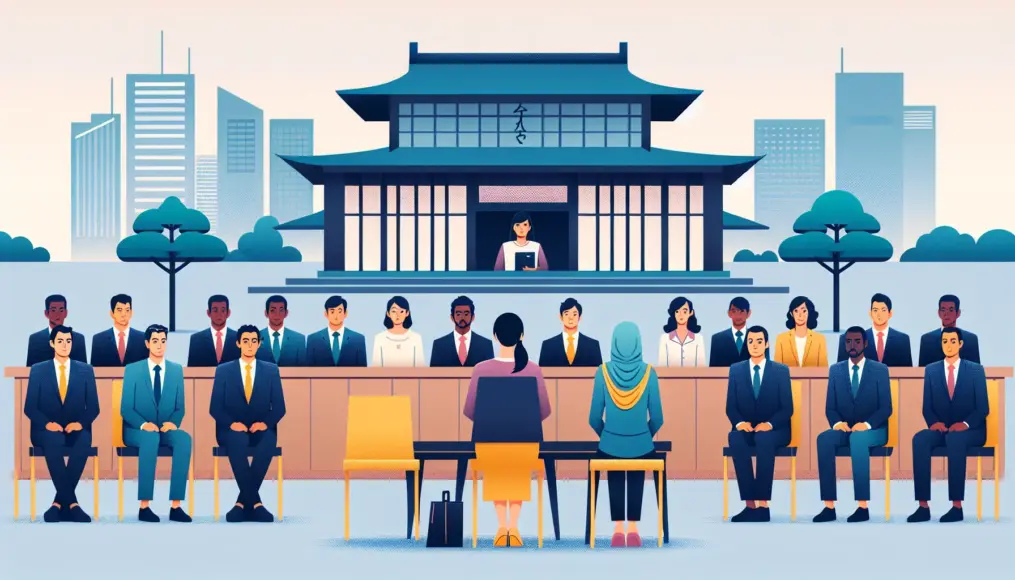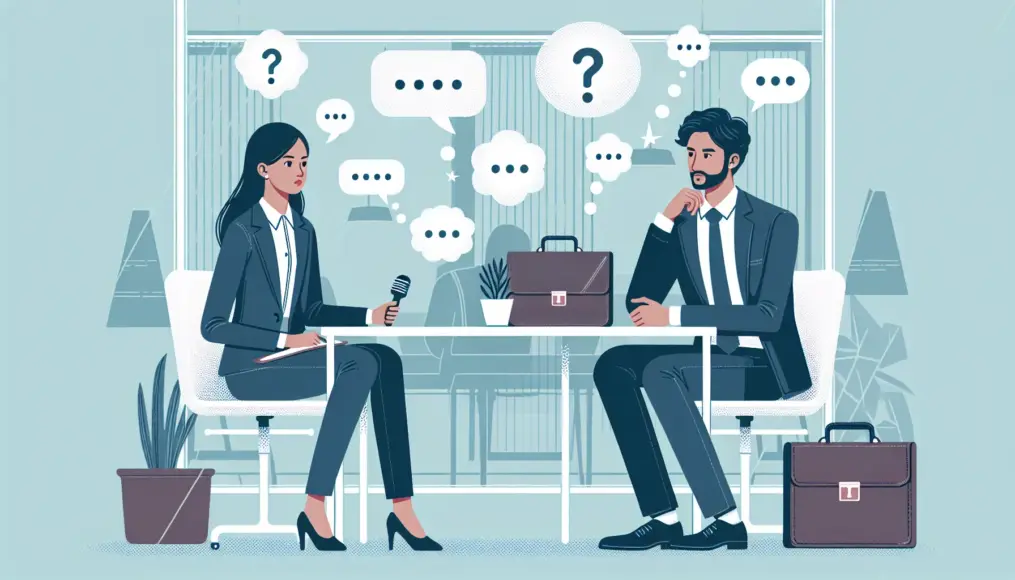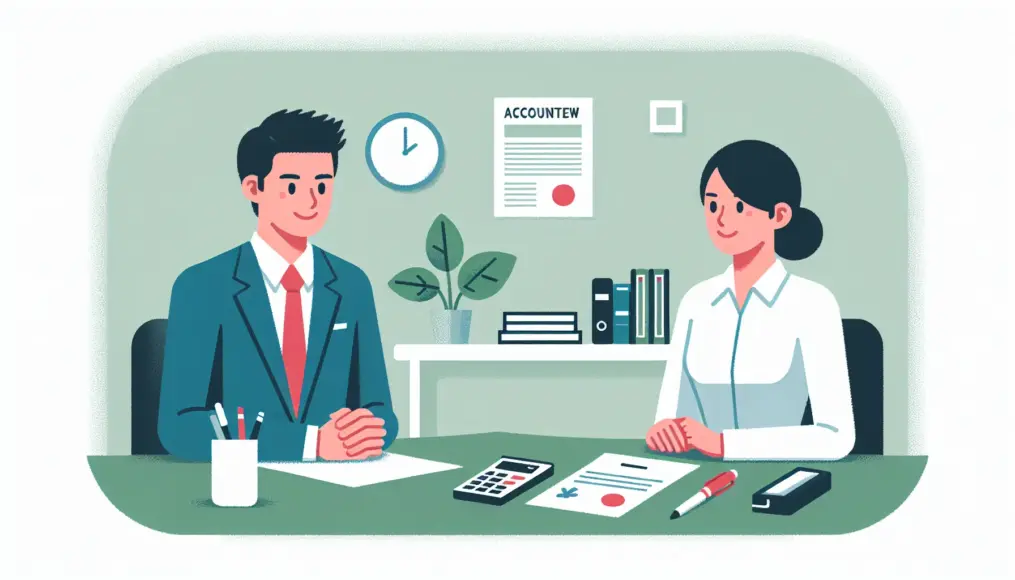When it comes to succeeding in an interview at the city hall, it’s not just about showcasing your skills and experiences; it’s equally important to ask insightful questions that resonate with the interviewers. Thoughtful questions serve as a golden opportunity to demonstrate your genuine interest in the position and the organization. This is especially true for public institutions like city halls, where the nature of your inquiries can significantly reflect your understanding and engagement with the role.
In this article, we’ll explore why asking questions during city hall interviews is crucial, the importance of cultural understanding, and provide some concrete examples of effective questions to ask. By leveraging thoughtful questions, you can leave a lasting impression on your interviewers.
- The impact of questions on interviewers
- Benefits of understanding the unique culture of city halls
- Examples of memorable questions to ask and questions to avoid
Understanding the nuances of the city hall environment can greatly enhance your interview experience. By preparing insightful questions, you not only show your preparedness but also your commitment to being a part of the community’s governance. So, let’s dive into how you can make the most of this opportunity!
The Importance of Asking Reverse Questions
In a city hall interview, it’s crucial not only to showcase your strengths but also to ask reverse questions to the interviewer. Reverse questions are a great opportunity to demonstrate your genuine interest in the workplace. Depending on the questions you choose, you can leave a strong impression on the interviewer. In this section, we will explore the power of reverse questions and why they are particularly important in city hall interviews.
The Impact of Thoughtful Questions
Reverse questions serve as an essential means of deepening communication with the interviewer. By asking the right questions, you not only showcase your understanding and interest but also build a rapport with the interviewer. In public institutions like city halls, where collaboration and communication among staff members are vital, the content of your reverse questions can significantly influence the interaction.
- Reverse questions enhance communication
- Build trust with the interviewer
- Particularly important in public institutions
Why Reverse Questions Matter in City Hall Interviews
During a city hall interview, reverse questions help you gain insight into the organization’s culture and values. Since city halls are closely involved with the community, employees must prioritize their relationships with citizens. By asking reverse questions, you can demonstrate how well your attitudes and values align with that culture. Thus, reverse questions carry more weight than mere inquiries.
If you understand the significance of reverse questions in city hall interviews and want to refine your techniques further, be sure to check out this article on “Techniques for Effective Reverse Questions That Make a Difference in Final Interviews”. This piece provides detailed examples and intentions behind reverse questions in final interviews. By effectively utilizing reverse questions, you can increase your chances of making a lasting impression on the interviewer.
- Reverse questions help you understand the organization’s culture
- Show your commitment to relationships with citizens
- Reverse questions serve as a tool to highlight your adaptability to the culture
Understanding the Culture of City Hall
When working at a city hall, it’s crucial to grasp its culture and customs. City halls are public institutions deeply connected to the community, and their operations impact many citizens. By demonstrating your understanding of city hall culture during the interview, you can showcase your enthusiasm and adaptability. In this section, we’ll explore the unique customs of city hall and how cultural understanding can influence your questions during the interview.
Unique Customs of City Hall
City halls have specific customs and values. For instance, there is a strong emphasis on community contribution and collaboration with citizens. Moreover, teamwork and information sharing among staff members are vital aspects of the work environment. By understanding this culture, you’ll be better equipped to ask appropriate follow-up questions to the interviewer.
- A focus on community contribution is essential
- Collaboration among staff is critical
- Teamwork is at the heart of the culture
The Impact of Cultural Understanding on Follow-Up Questions
Understanding the culture of city hall allows you to formulate deeper follow-up questions. Specifically, by asking questions that align with the values the interviewer is looking for, you can leave a strong impression of your adaptability and enthusiasm. Through these follow-up questions, you can delve deeper into the interviewer’s perspectives and the city hall’s vision, ultimately helping to build a trusting relationship.
- Follow-up questions become more insightful
- You gain insight into the values the interviewer seeks
- Opportunities to build trust increase
Examples of Effective Questions to Ask in an Interview
Asking insightful questions during an interview is not only a chance to showcase your interest but also a way to leave a positive impression on the interviewer. It’s important to think about the types of questions that can be most effective. In this section, we’ll explore memorable questions to ask and highlight those you should avoid.
Memorable Questions to Consider
Effective reverse questions can demonstrate your curiosity and understanding while fostering a deeper conversation with the interviewer. For instance, asking, “What kind of community contributions do you think this city office can make?” reflects your interest in the role while inviting the interviewer to share their thoughts. Another great question is, “What values do the staff prioritize in their work?” This can provide valuable insights into the organization’s culture.
- Questions about community contributions
- Questions regarding the values that staff prioritize
- Questions related to the vision of the city office
Questions to Avoid
Conversely, there are certain questions you should steer clear of. For example, asking, “Can you tell me about the salary and benefits?” might come off as inappropriate early in the interview process. Additionally, overly specific questions or those that may evoke negative impressions should be avoided. For instance, asking, “What is the turnover rate here at the city office?” could make the interviewer feel uneasy.
- Questions regarding salary and benefits
- Overly specific questions
- Questions that create a negative impression
Techniques to Extract Honest Insights from Interviewers Through Reverse Questions
Reverse questioning is not just a means of gathering information; it’s also an effective technique for uncovering the true thoughts of interviewers. By crafting your questions thoughtfully, you can gain insights into what the interviewer is really thinking and what values the organization genuinely holds dear. In this section, we’ll explore how to structure your questions and how to gauge the interviewer’s responses.
Structuring Your Questions
To make your reverse questions effective, it’s crucial to consider their structure. Start by utilizing open-ended questions. For instance, asking, “What values do you prioritize at this city hall?” allows the interviewer to respond freely, encouraging them to share deeper insights. Additionally, basing your questions on specific situations can prompt interviewers to share their personal experiences, leading to more concrete information.
- Utilize open-ended questions
- Ask questions based on specific situations
- Encourage interviewers to give thoughtful responses
Gauging the Interviewer’s Reactions
After posing your questions, it’s essential to pay close attention to the interviewer’s reactions. A positive response often indicates that you’re heading in the right direction with your inquiry. Conversely, if the response is vague or if the interviewer seems to deflect the question, it might be time to adjust your approach. Additionally, the content of your questions can reveal a lot through the interviewer’s facial expressions and tone of voice. By assessing these reactions, you’ll have valuable clues for deciding on your next question.
- Pay attention to the interviewer’s reactions
- Look for positive responses
- Read information from facial expressions and tone of voice
Conclusion
Asking reverse questions during a city hall interview is a crucial opportunity to demonstrate your interests and enthusiasm. This approach not only enhances communication with the interviewer but also serves as a great way to deepen your understanding of the local community. In this article, we explored the significance of reverse questions, offered specific examples, and provided tips on interpreting the interviewer’s responses.
To make the most of reverse questions, it’s essential to grasp the unique culture and customs of city hall, allowing you to craft memorable inquiries. Additionally, being aware of questions to avoid can help you leave a positive impression. Mastering the art of reverse questioning is key to a successful interview.
- Reverse questions are a means to build trust with the interviewer.
- Understanding the unique culture of city hall is vital.
- Crafting memorable questions can create a positive impression.
Utilize reverse questions in your city hall interview to showcase your strengths to the fullest. If you have any questions or comments, feel free to share!



Comment